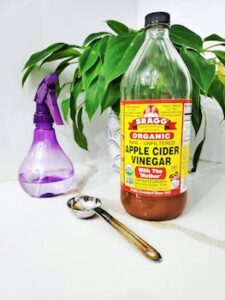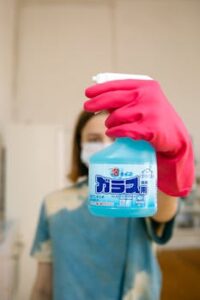Natural vs. Chemical Cleaners:
When to Use Each — And What’s a Safe Compromise?
Natural vs. Chemical Cleaners: When to Use Each — And What’s a Safe Compromise?
Choosing between natural and chemical cleaning products doesn’t have to be an all-or-nothing decision. While natural cleaners are praised for being eco-friendly and safe, there are situations where stronger chemical-based cleaners are necessary.
Let’s break down when to use each — and introduce two safer chemical options that give you the best of both worlds.

🌿 Natural Cleaners: Safe, Effective (Sometimes)
Natural products like vinegar, baking soda, lemon juice, and castile soap are biodegradable, low-toxicity, and ideal for families with children, pets, or sensitive skin.
Best for:
- Daily surface cleaning
- Windows and mirrors
- Light grease and grime
- Deodorizing and freshening
Benefits:
- Safe around kids and pets
- Non-toxic to humans and aquatic life
- Low or no VOCs
- Minimal environmental impact
Limitations:
Natural cleaners generally don’t disinfect well and may struggle with mold, heavy grease, or hard water stains.

🧪 Chemical Cleaners: Necessary in Some Situations
Chemical products like bleach sprays, ammonia-based cleaners, and degreasers are more aggressive — and sometimes necessary.
Best for:
- Toilets and showers
- Mold and mildew
- Post-illness disinfection (COVID, flu)
- Ovens and greasy stovetops
Downsides:
- Can irritate lungs or skin
- Often not biodegradable
- Harmful to waterways and wildlife
⚖️ Safer Chemical Options: The Middle Ground
If you want something more powerful than vinegar but safer than bleach, these two products offer a smart compromise
✅ Method All-Purpose Cleaner
Why it’s a great option:
- Plant-based, biodegradable ingredients
- No bleach, ammonia, or phosphates
- Cradle to Cradle Certified (ecosplendo.com)
- Bottles made from 100% recycled plastic
- Fragrances made with safer synthetic blends (no phthalates)
Best used for:
- Daily cleaning of kitchen and bathroom surfaces
- Eco-conscious households that still want performance
Source: methodproducts.com
✅ Clorox Green Works All-Purpose Cleaner
Why it’s a solid compromise:
- 95% naturally derived ingredients
- No bleach, phosphates, or ammonia
- Readily biodegradable
- Available in most retail stores
Things to consider:
- Contains SLS (can irritate skin)
- Includes ethanol (a VOC solvent)
- No third-party certifications
Best used for:
- Greasy kitchens
- Bathrooms needing a bit more cleaning power
- Households that want a safer alternative without going fully natural
Sources:
🧼 Quick Reference: When to Use What
Task | Best Option |
Daily surface wipe | Natural (vinegar spray) |
Toilet deep clean | Chemical or Green Works |
After illness | Chemical (EPA-registered disinfectant) |
Greasy stovetop | Method or Green Works |
Windows & mirrors | Natural (vinegar + water) |
Pet-safe floor cleaning | Natural (castile soap + water) |
Mold/mildew | Chemical (with caution) |
Final Thoughts
You don’t have to choose sides. Use natural cleaners for everyday maintenance and reach for safer chemical options when the mess calls for it.
By balancing both, you:
✅ Reduce exposure to harsh chemicals
✅ Lower your environmental footprint
✅ Keep your home genuinely clean — not just scented
Being mindful of what’s in your cleaning products helps you protect your home, your health, and the planet. 💚
Disclaimer
This article was written based on independent research using publicly available sources, including product websites, sustainability reports, and third-party evaluations from the U.S. EPA Safer Choice Program (epa.gov), Environmental Working Group (ewg.org), Karma Wallet (karmawallet.io), Safe Household Cleaning (safehouseholdcleaning.com), and Wikipedia.
No products mentioned in this article are sponsored, promoted, or affiliated with the author or Here 2 Clean LLC. All opinions are based on publicly available data and environmental criteria at the time of writing.
